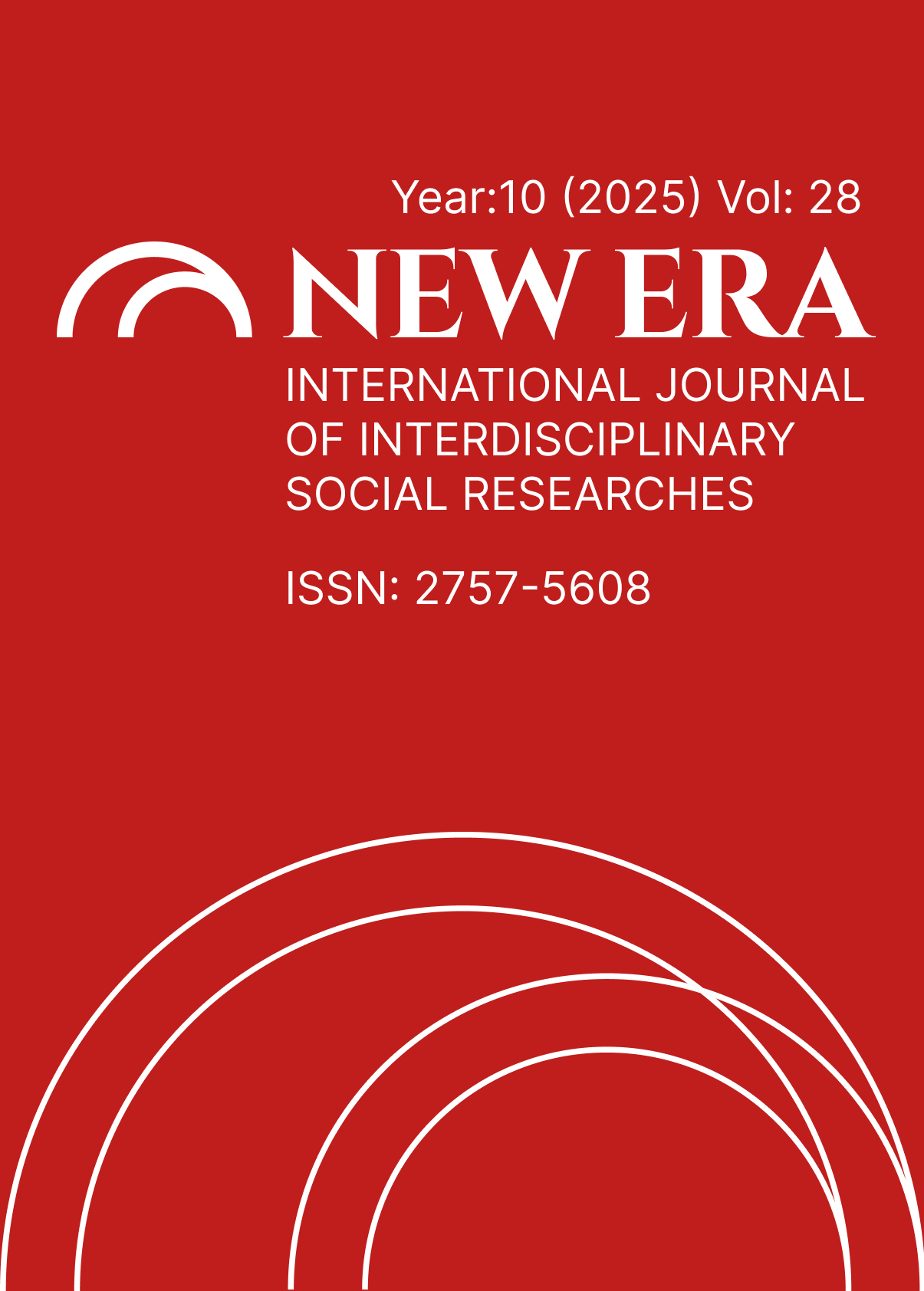BIOMETRIC ANALYSIS OF GASTRONOMY AND EXPERIENCE-BASED RESEARCH WITH R PROGRAM
DOI:
https://doi.org/10.5281/zenodo.15315539Abstract
This study aims to present a bibliometric analysis of academic articles at the intersection of gastronomy and experience-based research. Bibliometric studies are studies conducted to reveal the trends and development of academic studies in a particular field. The concept of gastronomy and experience are terms that are frequently used together, especially in the field of tourism, and the fact that the number of studies in this field has increased significantly in the last 10 years has necessitated the determination of the dynamics and development directions of the field. For this purpose, 413 research articles from the WoS (Web of Science) database were used as a data set. Bibliometric analyses were conducted using the Biblioshiny interface in the R statistical program. In the findings of the study, prominent authors, keyword cloud, prominent journals, authors, collaborations between countries and the orientations of the articles under study are visualized and presented with thematic maps. It is thought that the research findings will make a modest contribution to the field of gastronomy and experimentation and will guide researchers who want to work in this field.
References
Aria, M., & Cuccurullo, C. (2017). bibliometrix: An R-tool for comprehensive science mapping analysis. Journal of Informetrics, 11(4), 959–975. https://doi.org/10.1016/j.joi.2017.08.007
Berbel-Pineda, J. M., Palacios-Florencio, B., Ramírez-Hurtado, J. M., & Santos-Roldán, L. (2019). Gastronomic experience as a factor of motivation in the tourist movements. International Journal of Gastronomy and Food Science, 18, 100171. https://doi.org/10.1016/j.ijgfs.2019.100171
Chang, R. C., Kivela, J., & Mak, A. H. (2011). Attributes that influence the evaluation of travel dining experience: When East meets West. Tourism Management, 32(2), 307-316.
Cobo, M. J., López-Herrera, A. G., Herrera-Viedma, E., & Herrera, F. (2011). An approach for detecting, quantifying, and visualizing the evolution of a research field: A practical application to the Fuzzy Sets Theory field. Journal of Informetrics, 5(1), 146-166. https://doi.org/10.1016/j.joi.2010.10.002
Cobo, M. J., Martínez, M. A., Gutiérrez-Salcedo, M., Fujita, H., & Herrera-Viedma, E. (2015). 25 years at Knowledge-Based Systems: A bibliometric analysis. Knowledge-Based Systems, 80, 3-13. https://doi.org/10.1016/j.knosys.2014.12.035
Cordova-Buiza, F., Gabriel-Campos, E., Castaño-Prieto, L., & García-García, L. (2021). The Gastronomic Experience: Motivation and Satisfaction of the Gastronomic Tourist—The Case of Puno City (Peru). Sustainability, 13(16), 16. https://doi.org/10.3390/su13169170
De Freitas Coelho, M., De Sevilha Gosling, M., & De Almeida, A. S. A. (2018). Tourism experiences: Core processes of memorable trips. Journal of Hospitality and Tourism Management, 37, 11–22. https://doi.org/10.1016/j.jhtm.2018.08.004
Dirik, D., Erhan, T., & Eryılmaz, İ. (2024). Yapay zekâ ve örgüt temelli araştırmaların potansiyel eğilimleri üzerine bibliyometrik bir analiz. Bulletin of Economic Theory and Analysis, 9(3), 3. https://doi.org/10.25229/beta.1487924
Durlu Özkaya, F., & Cömert, M. (2017). Türk mutfağında yolculuk. Detay Yayıncılık.
Kivela, J., & Crotts, J. C. (2006). Tourism and gastronomy: Gastronomy's influence on how tourists experience a destination. Journal of hospitality & tourism research, 30(3), 354-377.
Karakuş, M. (2024). A bibliometric analysis of rebel governance. Anadolu Üniversitesi İktisadi ve İdari Bilimler Fakültesi Dergisi, 25(4), 284-316. https://doi.org/10.53443/anadoluibfd.1486217
Kumar, M., George, R. J., & PS, A. (2023). Bibliometric analysis for medical research. Indian Journal of Psychological Medicine, 45(3), 277-282. https://doi.org/10.1177/02537176221103617
Long, L. M. (Ed.). (2004). Culinary tourism. University Press of Kentucky.
Majerova, I., & Abdrazakova, A. (2021). A bibliometric mapping of cost-benefit analysis—Three decades of studies. Economies, 9(3), 110. https://doi.org/10.3390/economies9030110
Rashmi, K., & Kataria, A. (2021). Work–life balance: A systematic literature review and bibliometric analysis. International Journal of Sociology and Social Policy, 42(11/12), 1028–1065. https://doi.org/10.1108/ijssp-06-2021-0145
Selwood, J. (2004). The lure of food: Food as an attraction in destination marketing in Manitoba, Canada. In Food tourism around the world (pp. 178-191). Routledge.
Scarpato, R. (2002). Sustainable gastronomy as a tourist product. In A. Hjalager & G. Richards (Eds.), Tourism and gastronomy (pp. 132-152). Routledge.
Quan, S., & Wang, N. (2004). Towards a structural model of the tourist experience: An illustration from food experiences in tourism. Tourism management, 25(3), 297-305.
Şenyapar, H. N. D. (2023). A bibliometric analysis on renewable energy’s public health benefits. Journal of Energy Systems, 7(1), 132–157. https://doi.org/10.30521/jes.1252122
Van Leeuwen, T. (2006). The application of bibliometric analyses in the evaluation of social science research: Who benefits from it, and why it is still feasible. Scientometrics, 66(1), 133–154. https://doi.org/10.1007/s11192-006-0010-7
Walls, A., Okumus, F., Wang, Y., & Kwun, D. J. W. (2011). Understanding the consumer experience: An exploratory study of luxury hotels. Journal of Hospitality Marketing & Management, 20(2), 166-197.
Zengin, B., & Gürkan, A. S. (2019). Afyonkarahisar mutfağinin gastronomi turizmi açısından değerlendirilmesi. Safran Kültür ve Turizm Araştırmaları Dergisi, 2(2), 225-240.
Downloads
Published
How to Cite
Issue
Section
License
Copyright (c) 2025 NEW ERA INTERNATIONAL JOURNAL OF INTERDISCIPLINARY SOCIAL RESEARCHES

This work is licensed under a Creative Commons Attribution-NonCommercial 4.0 International License.


